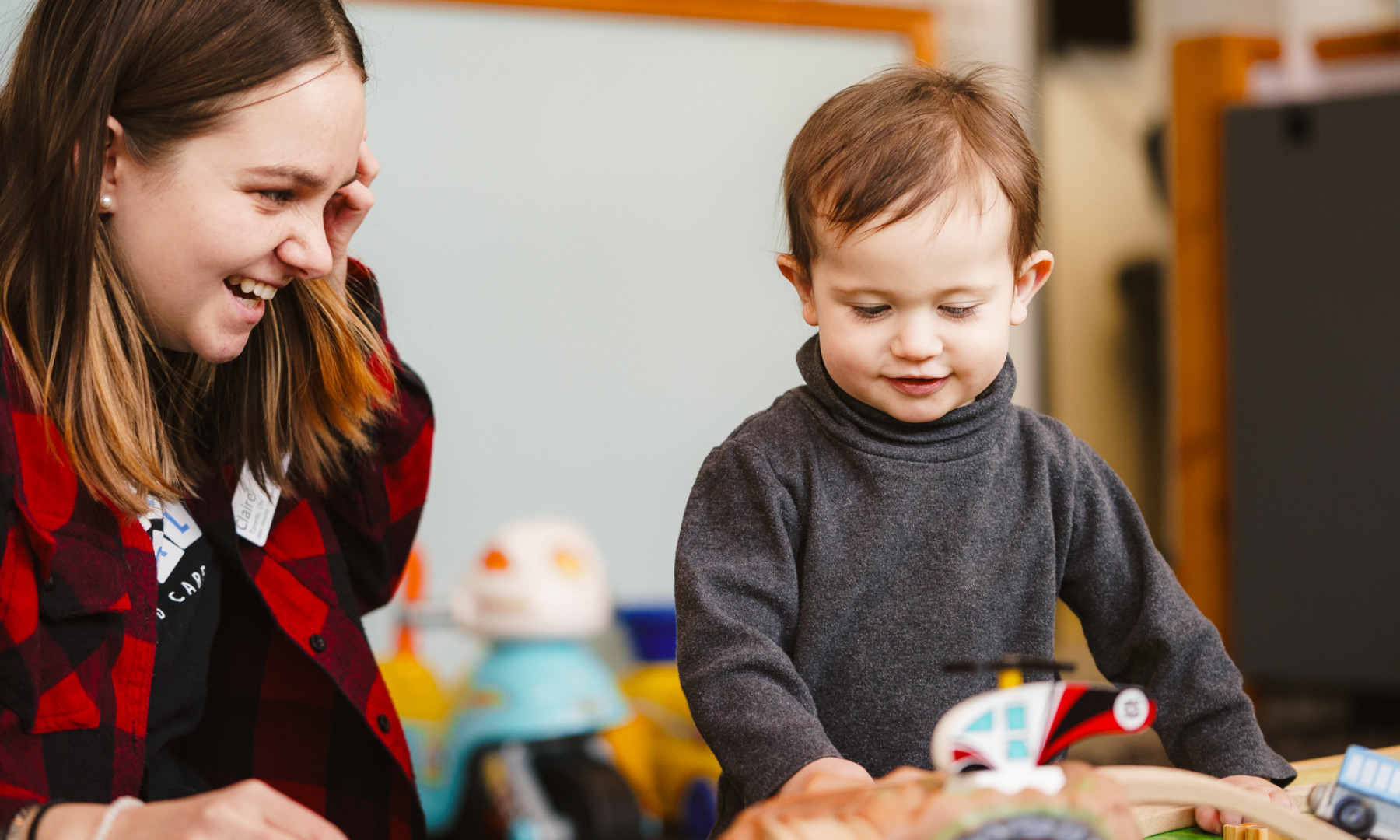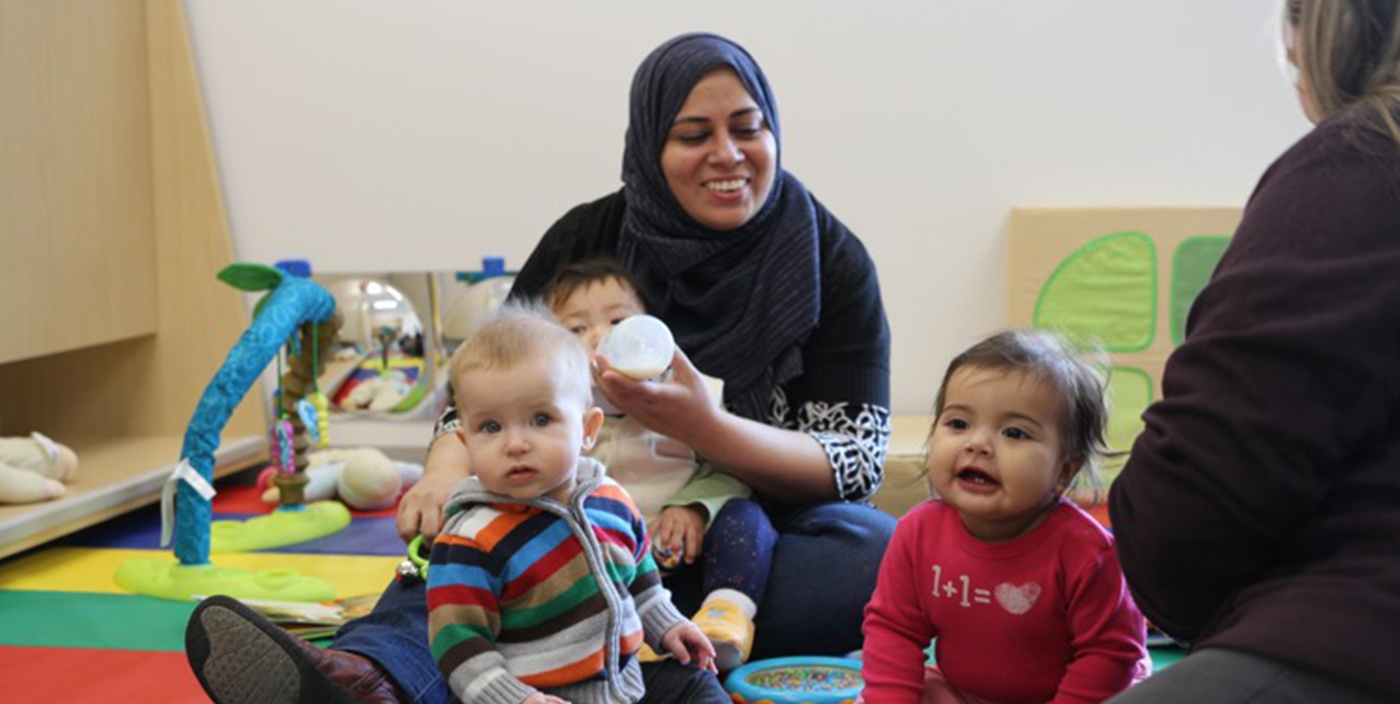Comprehending the Importance of Childcare for Your Kid's Social Growth and Knowing Knowledge Through Engaging Activities
The significance of day care in shaping a young child's social advancement and understanding can not be overemphasized, as it supplies an organized setting filled with engaging activities that are essential for early development. As we check out the diverse advantages of day care, one should consider exactly how these foundational experiences influence a child's future social interactions and overall advancement.

Advantages of Social Interaction
Social communication plays an essential duty in the developmental trajectory of kids, serving as a foundation for vital social abilities. Engaging with peers allows toddlers to practice interaction, learn to express their emotions, and develop compassion. With shared play and cooperation, they begin to recognize social norms, such as taking turns and sharing, which are important components of effective social connections.
Furthermore, social interactions add to cognitive growth. As kids interact with their peers, they enhance their language skills, broaden their vocabulary, and improve their ability to articulate thoughts and feelings. This exchange of ideas promotes vital thinking, as kids discover to work out, fix problems, and navigate disputes.
In addition, social interaction promotes emotional policy. Direct exposure to numerous social situations aids toddlers acknowledge and manage their emotions, inevitably bring about better resilience and versatility. The capability to create attachments and friendships likewise enhances their sense of belonging and self-worth, which are essential for overall health.
Relevance of Involving Tasks
Involving activities are crucial for fostering a revitalizing environment that boosts young children' social advancement. These activities not just captivate children's interest yet also advertise energetic participation, enabling them to explore their surroundings creatively. With play-based learning, kids establish important skills such as problem-solving, collaboration, and compassion, all of which are vital for developing healthy relationships with peers.
Joining engaging tasks, such as team video games, art tasks, and interactive storytelling, motivates young children to reveal their ideas and sensations. This expression is essential for psychological intelligence and aids them understand the viewpoints of others. When kids involve in these activities with each other, they learn to work out roles, share sources, and work together, which are basic facets of social interaction.
Furthermore, a well-structured atmosphere that includes stimulating and varied activities aids in maintaining young children motivated and focused. This inspiration cultivates a love for discovering and expedition, laying the structure for future instructional experiences. Eventually, involving tasks in daycare setups are critical in forming social abilities, preparing kids for effective communications beyond the classroom, and supporting their overall development during these developmental years.
Developing Interaction Abilities
Effective communication skills are crucial for toddlers as they browse their early social communications. In a day care setup, children are exposed to diverse social situations that motivate verbal and non-verbal interaction. Engaging in conversations with caretakers and peers fosters language advancement, allowing young children to express their emotions, requirements, and thoughts much more efficiently.

Furthermore, daycare environments give possibilities for kids to observe and resemble communication designs of their peers and grownups. This empirical understanding is crucial as kids notice social hints, tone, and body movement, which are necessary elements of effective communication.
Fostering Freedom and Self-confidence
As kids refine their communication skills, they simultaneously begin to discover their independence and construct self-confidence in social setups (daycare near me for infants). Childcare supplies a structured environment where kids can engage in numerous tasks that encourage freedom. From choosing their very own activities to joining team jobs, these experiences equip kids to choose and express themselves
In a childcare setup, children are usually offered with possibilities to solve troubles separately, whether it's figuring out how to share toys or dealing with disputes with peers. This promotes essential thinking and advertises self-sufficiency. Additionally, caregivers support this development by providing positive reinforcement and advice, helping youngsters to navigate social communications with self-confidence.

Team tasks, such as cooperative games or this link joint art jobs, help with team effort and show kids the importance of interacting. Through these interactions, youngsters learn to interact their sensations and ideas, better enhancing their self-confidence and social abilities.
Inevitably, fostering self-reliance and confidence in childcare not just prepares toddlers for future social environments yet additionally lays the foundation for a durable state of mind, furnishing them with essential life abilities as they remain to grow and go to this site discover.
Building Lifelong Understanding Foundations
A solid foundation for long-lasting discovering is vital for kids, as their early experiences shape their attitudes towards education and learning and interest. Daycare settings play a crucial role in this developmental stage by supplying structured chances for expedition and interaction. Engaging tasks, such as group play, crafts and arts, and interactive storytelling, boost cognitive development while encouraging social communication.
Via these experiences, kids learn crucial skills such as problem-solving, communication, and teamwork. They are introduced to the concept of finding out as an enjoyable, collaborative procedure as opposed to a job, which cultivates a positive perspective towards education and learning. Direct exposure to varied viewpoints and peer interactions in childcare settings boosts psychological intelligence, advertising empathy and durability.
Caregivers and educators likewise contribute significantly to developing this foundation by modeling inquisitiveness and enthusiasm for understanding. By motivating questions and promoting conversations, they develop an atmosphere where children feel safe to reveal themselves and discover originalities. Ultimately, the mix of encouraging relationships and engaging activities in daycare settings prepares for a long-lasting love of understanding, gearing up young children with the abilities and attitude essential for future scholastic and individual success.
Conclusion

The importance of day care in shaping a young child's social development and knowing can not be overstated, as it provides an organized atmosphere filled up with appealing activities that are essential for very early growth.Social interaction plays an essential duty in the developing trajectory of kids, serving as a foundation for crucial social skills. When kids engage in these activities together, they find out to negotiate functions, share sources, and collaborate, which are basic facets of social interaction.
Inevitably, involving tasks in day care settings are crucial in forming social abilities, preparing toddlers for effective interactions past the class, and supporting their overall development throughout these formative years.
Ultimately, the benefits of appealing tasks in childcare settings play a considerable function in preparing toddlers for future social communications and challenges. daycare near me for infants.